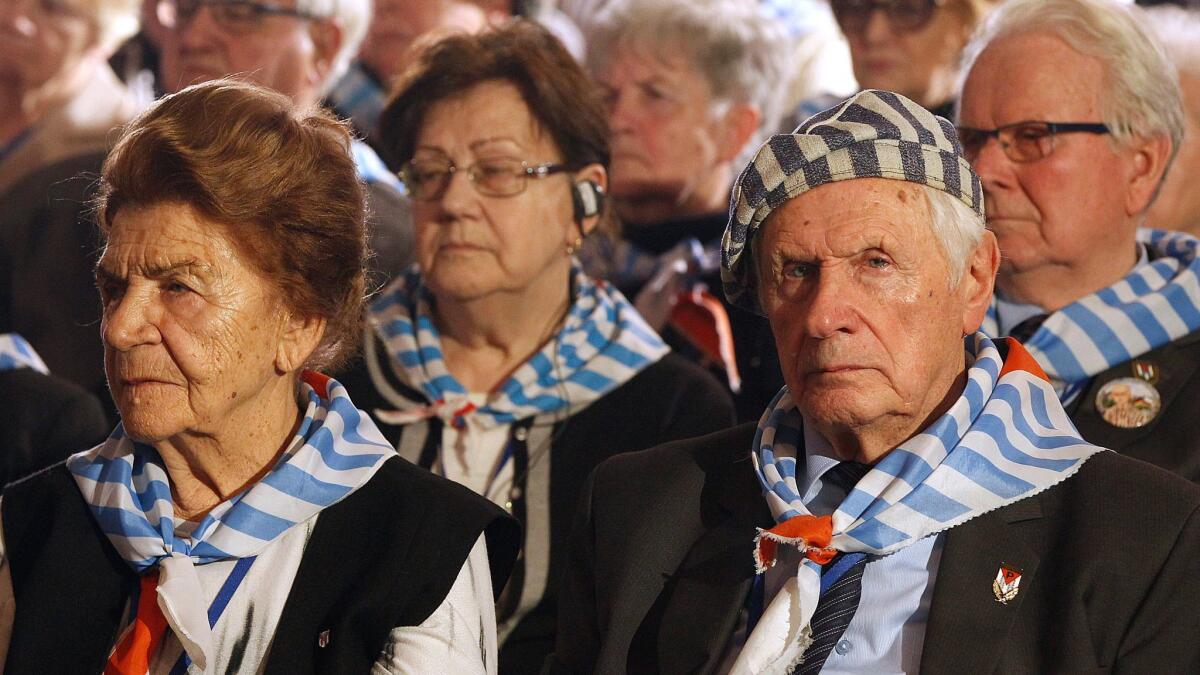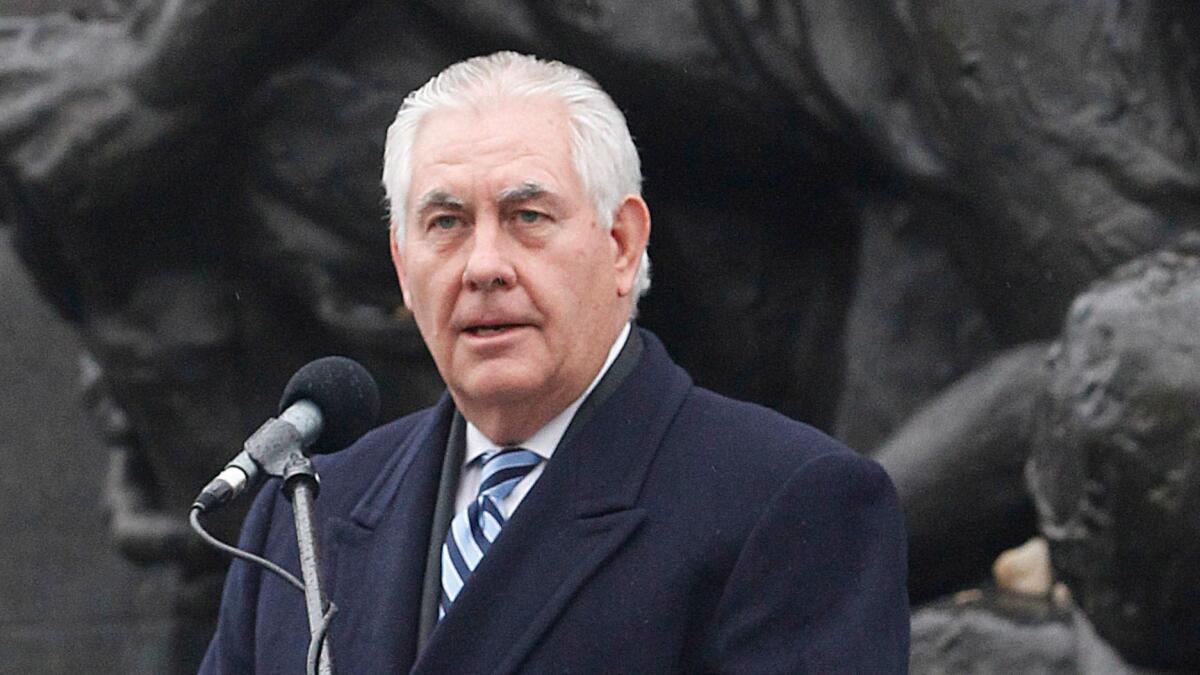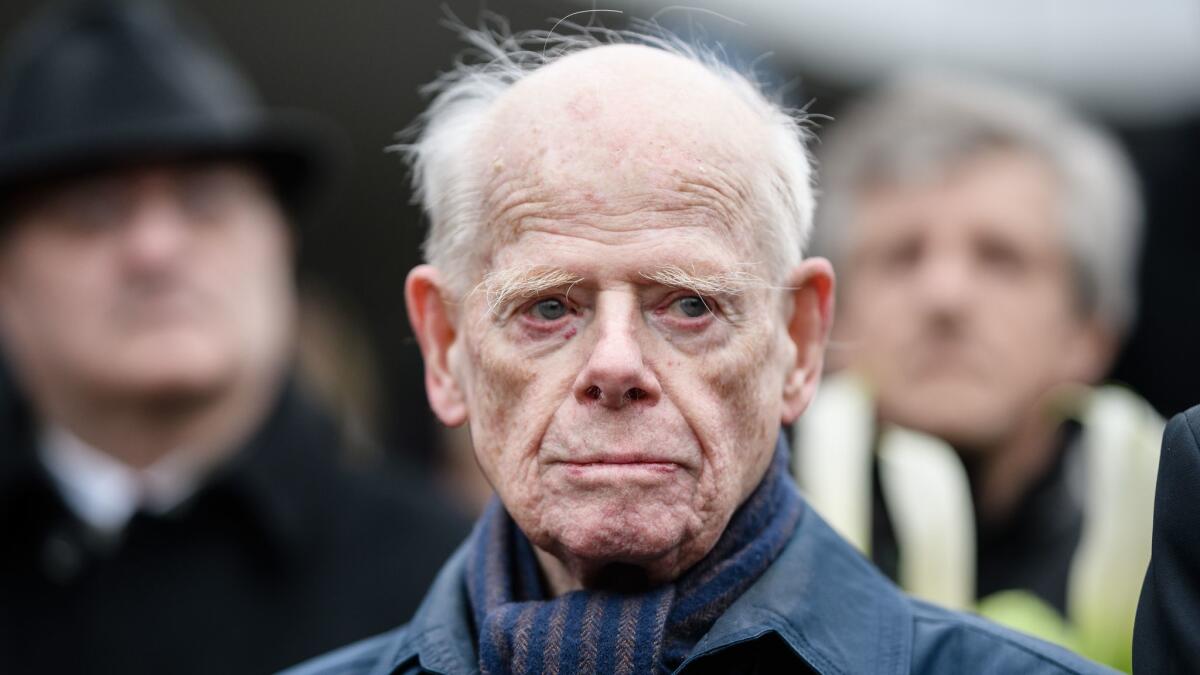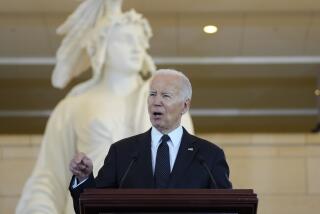On anniversary of Auschwitz’s liberation, world remembers Holocaust amid signs of rising hate

Reporting from WARSAW, Poland — Elderly Holocaust survivors wearing striped scarves that recalled their uniforms as prisoners of Nazi Germany made a yearly pilgrimage to Auschwitz on Saturday, 73 years after the Soviet army liberated the death camp in occupied Poland.
On the date now commemorated as International Holocaust Remembrance Day, political leaders and Jewish officials warned that the Nazi genocide must never cease serving as a reminder of the evil of which humans are capable.
In Warsaw, Poland, U.S. Secretary of State Rex Tillerson attended a solemn ceremony at a memorial to the Jews who died fighting the German forces in the Warsaw Ghetto Uprising of 1943.
Tillerson trailed two uniformed Polish military officers and readjusted a wreath underneath the monument, a hulking structure in what was once the Warsaw Ghetto.
The head of Warsaw’s Jewish community read a prayer, and Tillerson made brief remarks about the importance of not forgetting the horrors of the Holocaust.
“On this occasion, it reminds us that we can never, we can never, be indifferent to the face of evil,” Tillerson said.

“The Western alliance which emerged from World War II has committed itself to ensuring the security of all that this would never happen again,” he said. “As we mark this day in solemn remembrance, let us repeat the words of our own commitment: Never again. Never again.”
His words came amid signs in Europe and beyond that ultranationalism and extreme right-wing groups are on the rise.
In Germany and Austria, the nations that perpetrated the killing of 6 million Jews and millions of others during World War II, far-right parties with their roots in the Nazi era are gaining strength.
The anti-migrant, anti-Muslim AfD party won seats in the German parliament for the first time last year, while the nationalist, anti-migrant Freedom Party is part of the coalition running the Austrian government.
Both parties have members who have made anti-Semitic remarks.
Ultranationalists who espouse anti-Jewish and anti-Muslim views seem emboldened elsewhere as well.
“Neo-Nazis and white supremacy groups are among the main purveyors of extreme hatred,” U.N. Secretary-General Antonio Guterres said in a statement. “And too often, vile views are moving from the margins to the mainstream of societies and politics. We must stand together against the normalization of hate.”
In Europe, the outspoken white nationalism is seen as partially a backlash to a large influx of mostly Muslim migrants that peaked in 2015.
Some of those migrants have brought their own brand of anti-Semitism with them.
In Germany, many Jews have reported feeling threatened by anti-Semitism — both from native far-right groups and from newcomers from Arab countries. Jewish institutions across the country have increased security.
Meanwhile, Muslim immigrants have been targets of German far-right attacks or threats.

Hanni Levy, a 93-year-old Holocaust survivor from Berlin, criticized anti-migrant hatred during a speech Saturday at a Greens party convention in Hanover.
“In the past, the Jews were found guilty of everything. Today, it’s the refugees,” Levy said. “One should never forget how difficult it is to leave behind everything just to survive.”
German Chancellor Angela Merkel marked the day in her weekly podcast by addressing the reemergence of anti-Semitism.
She called it “incomprehensible and a disgrace that no Jewish institution can exist without police security —whether it is a school, a kindergarten or a synagogue.”
More to Read
Sign up for Essential California
The most important California stories and recommendations in your inbox every morning.
You may occasionally receive promotional content from the Los Angeles Times.










